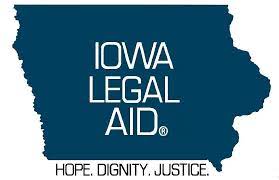
The Importance of Legal Aid: Ensuring Access to Justice for All
Legal aid plays a crucial role in ensuring that all individuals, regardless of their financial situation, have access to justice and legal representation. In a society where the law can be complex and intimidating, legal aid provides a lifeline for those who cannot afford private attorneys.
One of the key benefits of legal aid is that it helps level the playing field in the legal system. Without access to proper legal representation, individuals may struggle to navigate complex legal processes or understand their rights. Legal aid services provide guidance and support to ensure that everyone has a fair chance at receiving justice.
Legal aid also serves as a vital resource for marginalized and vulnerable populations. Low-income individuals, victims of domestic violence, immigrants, and other underserved communities often rely on legal aid organizations to protect their rights and advocate on their behalf. These services help empower individuals to assert their legal rights and seek redress for injustices they may face.
Furthermore, legal aid contributes to upholding the principles of equality and fairness in society. By providing assistance to those who cannot afford traditional legal services, legal aid helps prevent inequalities in access to justice and ensures that everyone has the opportunity to seek redress through the legal system.
In conclusion, legal aid is an essential component of a just and equitable society. By supporting access to justice for all individuals, regardless of their financial means, legal aid organizations play a critical role in upholding the rule of law and protecting the rights of every member of our community.
Understanding Legal Aid: A Guide to Access, Eligibility, and Coverage
- What is legal aid and how does it work?
- Who is eligible for legal aid services?
- What types of legal issues are covered by legal aid?
- How do I apply for legal aid assistance?
- Are legal aid services free of charge?
What is legal aid and how does it work?
Legal aid is a vital service that provides legal assistance to individuals who may not have the financial means to hire a private attorney. It ensures that everyone has access to justice by offering guidance, representation, and support in navigating legal processes. Legal aid organizations typically employ lawyers and legal professionals who offer their services either for free or at a reduced cost to eligible clients. Through legal aid, individuals can receive advice on their rights, assistance with legal documents, representation in court proceedings, and help in resolving legal disputes. By bridging the gap between those in need of legal help and the complex legal system, legal aid plays a crucial role in promoting fairness and equality in society.
Who is eligible for legal aid services?
Legal aid services are typically available to individuals who meet specific criteria based on their income level and the nature of their legal issue. Eligibility for legal aid may vary depending on the organization providing the services, but generally, low-income individuals, victims of domestic violence, immigrants facing legal challenges, and other marginalized populations are prioritized for assistance. Additionally, some legal aid programs consider factors such as the complexity of the case and the potential impact on fundamental rights when determining eligibility. It is important to contact a local legal aid organization to inquire about specific eligibility requirements and available services in order to access the support needed for navigating legal challenges effectively.
What types of legal issues are covered by legal aid?
Legal aid services typically cover a wide range of legal issues to ensure that individuals have access to the legal assistance they need. Common types of legal issues that are covered by legal aid organizations include family law matters such as divorce, child custody, and domestic violence cases. Additionally, legal aid may provide support for housing disputes, employment rights violations, consumer protection issues, immigration matters, and access to healthcare. By addressing these diverse legal needs, legal aid plays a crucial role in promoting equal access to justice and protecting the rights of individuals facing various challenges in our society.
How do I apply for legal aid assistance?
To apply for legal aid assistance, individuals typically need to contact their local legal aid organization or access their website to review the eligibility criteria and application process. Most legal aid providers require applicants to demonstrate financial need and meet specific guidelines based on income levels and the nature of the legal issue. Applicants may be asked to provide documentation such as proof of income, identification, and details about the legal matter for which they are seeking assistance. It is important to reach out to the legal aid organization promptly, as there may be limited availability of services or specific deadlines for application submissions. By following the outlined steps and providing the necessary information, individuals can begin the process of seeking valuable legal support through legal aid services.
Are legal aid services free of charge?
Legal aid services are typically provided free of charge or at a significantly reduced cost to individuals who meet certain income eligibility criteria. These services are designed to ensure that everyone has access to legal representation, regardless of their financial situation. Legal aid organizations rely on government funding, grants, and donations to offer their services without cost to those in need. It is important for individuals seeking legal assistance to inquire about the specific eligibility requirements and fee structures of the legal aid organization they are approaching to determine if they qualify for free or low-cost legal services.
